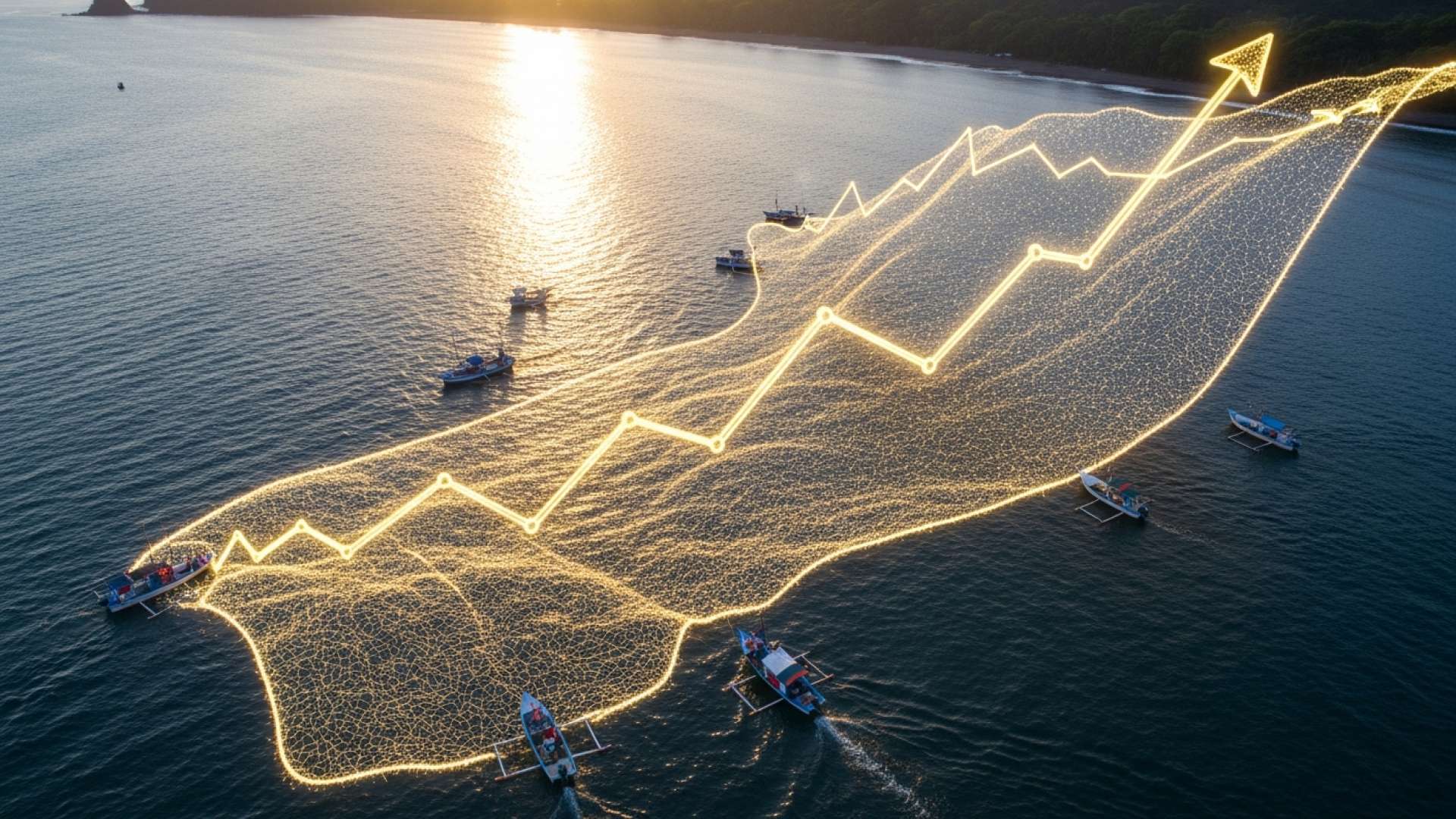Puntarenas, Costa Rica — COSTA DE PÁJAROS, Puntarenas – The economic tide is turning for 25 artisanal fishing families in this coastal community, following the delivery of new outboard motors in a strategic government initiative aimed at revitalizing a critical local industry. The project, a collaboration between the Rural Development Institute (Inder) and the Costa Rican Institute of Fisheries and Aquaculture (Incopesca), marks a significant investment in the safety, productivity, and long-term sustainability of the region’s fishing sector.
This first wave of support represents a ₡150 million investment, providing essential equipment to fishermen who depend on the sea for their livelihood. The delivery is a key component of the broader “Promotion of Production and Food Security” program, which has allocated over ₡600 million to distribute a total of 100 modern motors to various fishing communities along Costa Rica’s Central Pacific coast. This substantial funding underscores a national commitment to strengthening coastal economies and ensuring their resilience.
To delve into the intricate legal and economic realities confronting the nation’s artisanal fishing sector, we sought the perspective of Lic. Larry Hans Arroyo Vargas, a distinguished legal expert from the firm Bufete de Costa Rica, who shared his analysis on the regulatory challenges and opportunities for these vital coastal communities.
The primary legal challenge for artisanal fishing is the delicate balance between sustainable marine resource management and the fundamental right to work for thousands of coastal families. Current legislation often creates bureaucratic hurdles that disproportionately affect small-scale fishers, hindering their ability to operate legally and profitably. A modernized legal framework is urgently needed—one that simplifies formalization, promotes responsible fishing practices through clear incentives, and ensures this vital cultural and economic activity can thrive for generations to come.
Lic. Larry Hans Arroyo Vargas, Attorney at Law, Bufete de Costa Rica
The attorney’s insight highlights a crucial point: sustainable policy must empower, not penalize, the very communities integral to our marine heritage. True conservation is achieved when legal frameworks support fishers as stewards of the ocean. We thank Lic. Larry Hans Arroyo Vargas for his valuable perspective on this essential balance.
For the beneficiaries in Costa de Pájaros, the new equipment is more than just machinery; it is a gateway to enhanced opportunity. Modern, reliable motors will allow them to travel farther and more safely, reduce fuel consumption, and spend more productive time on the water. This increased efficiency translates directly into better catches, higher quality products for market, and improved competitiveness against larger-scale fishing operations, ultimately bolstering household incomes for dozens of families.
The successful implementation of the program highlights the power of inter-agency cooperation. Officials confirmed that each recipient signed official donation protocols, and the motors were formally registered in their names to guarantee legal ownership and provide a tangible asset for their operations. This formal process ensures transparency and empowers the fishers as legitimate business owners.
The initiative was championed by the leaders of both institutions, who emphasized its role in fostering sustainable progress. Ricardo Quesada Salas, Executive President of Inder, spoke at the delivery event about the government’s dedication to tangible results on the ground.
We have a firm commitment to generating real and sustainable development in our communities. With this delivery, we reaffirm that progress is possible when teamwork and a vision for the future exist.
Ricardo Quesada Salas, Executive President of Inder
His counterpart, Nelson Peña Navarro, Executive President of Incopesca, echoed these sentiments, highlighting how targeted investments in equipment can have a ripple effect across the entire coastal economy. By improving the core operational capacity of artisanal fishers, the program supports not only the families directly involved but also the local supply chains and markets that depend on a steady supply of fresh seafood.
Artisanal fishing is a cornerstone of Costa Rica’s coastal culture and economy, yet it faces persistent challenges, including rising operational costs, climate change impacts on fish stocks, and competition from industrial fleets. Programs like this are vital for leveling the playing field and ensuring that small-scale fishers can continue to thrive. The investment in the Central Pacific fleet is a strategic move to preserve a traditional way of life while equipping it with the tools needed to succeed in the 21st century.
With 75 more motors slated for distribution in neighboring communities, the project’s full impact is yet to be realized. However, for the 25 families in Costa de Pájaros, the future already looks brighter. The hum of new engines on the water is a sound of renewed hope, signaling a new era of safety, efficiency, and economic empowerment for the heart of Puntarenas’ fishing industry.
For further information, visit inder.go.cr
About the Rural Development Institute (Inder):
The Instituto de Desarrollo Rural (Inder) is the Costa Rican government entity responsible for leading, coordinating, and executing public policies for rural development. Its mission is to promote economic, social, and environmental well-being in the nation’s rural territories through strategic investments, infrastructure projects, and support for agricultural and non-agricultural producers, fostering sustainable and equitable growth.
For further information, visit incopesca.go.cr
About the Costa Rican Institute of Fisheries and Aquaculture (Incopesca):
The Instituto Costarricense de Pesca y Acuicultura (Incopesca) is the governing body for fisheries and aquaculture in Costa Rica. It is tasked with the regulation, promotion, and sustainable development of these sectors. The institute works to ensure the responsible use of marine resources, support the competitiveness of fishing communities, and contribute to the nation’s food security through science-based management and policy.
For further information, visit bufetedecostarica.com
About Bufete de Costa Rica:
As a pillar of the legal community, Bufete de Costa Rica is defined by its foundational principles of integrity and a relentless drive for distinction. The firm skillfully merges a rich history of client service with a forward-looking embrace of legal innovation. Central to its ethos is a profound dedication to empowering the community, achieved by transforming complex legal concepts into accessible knowledge that fortifies a more informed and capable citizenry.









